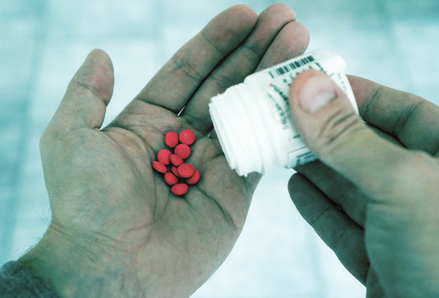This article is part of our regular travel and global health news round-up.
Finding safe medicines abroad is a commonly-overlooked part of trip planning. Whether you take prescription medication or need over-the-counter medicine to treat an unexpected illness, it’s important to be aware of how to find safe, good quality medication when you’re travelling.
Travel and safe medicines
We were saddened by the news of two young travellers who died in Cambodia last month. The travellers were ill and had gone to a pharmacy for medication but were later found unresponsive in their hostel room. Their deaths are currently being investigated. Our thoughts are with their families.
In a CBC News article about this case, Dr. Pierre Plourde of the Winnipeg Regional Health Authority emphasizes that falsified medicines are a major illicit industry and that counterfeiters have sophisticated methods for passing off fake medicines as the real thing.
Raising awareness about fake medicines
Many travellers are unaware of the risks of purchasing medications online, from unlicensed pharmacies or vendors at markets, and the possibility that fake medicines with convincing packaging may be unknowingly distributed by licensed pharmacies. More regulation is needed to make sure that patients and travellers have access to safe medicines and are protected from dangerous fake products. As such, we have worked with the Fight the Fakes campaign since 2015 to raise awareness of these issues among travellers.
Fake and substandard medicines are dangerous and jeopardize people’s trust in their health system. Fake medicines (or falsified medical products) deliberately mislead patients and health professionals (they may have deceptive packaging; too much, too little, or no active ingredient; or include toxic substances). Substandard medicines are produced by legitimate manufacturers but do not meet quality standards (for example, they may be contaminated or expired).
The World Health Organization (WHO) recently released 2 new reports on this issue. A few key points:
- Substandard and falsified medicines are found in all countries. Falsified products and packaging may be manufactured in one country and shipped to another for assembly and distribution.
- WHO estimates that 1 in 10 medicines in low- or middle-income countries is falsified or substandard. Many cases may be going unreported and more research is needed to better assess the scope of the problem of fake medicines.
- Antimalarials and antibiotics are the fake medicines most frequently reported to the WHO.
Fake medicines contribute to the spread of drug-resistant Malaria parasites and bacteria, making it more difficult to treat infections. In particular, the spread of artemisinin-resistant Malaria from Southeast Asia to Africa would put millions of people – especially children – at risk. We continuously update our World Malaria Risk Chart and online Malaria information to include the latest data on drug-resistant Malaria and antimalarial medication recommendations.
What you can do
Everything in travel is about risk mitigation. I love travel. It’s an incredibly enriching experience.
– Dr. Pierre Plourde, Winnipeg Regional Health Authority
Don’t let the risk of fake medicines deter you from travelling – a little preparation goes a long way!
It’s best to purchase prescription medication and medication for common travel ailments (such as pain relievers, antihistamines, or medicine for nausea and vomiting) from a reliable source before your departure. (Read Dr. Erik McLaughlin’s tips for assembling the perfect travel health kit in our eLibrary.)
Get any necessary travel vaccines at least 6 weeks before your trip if possible. Even though vaccines may be cheaper at your destination, consider the risk of fake or poor quality vaccines. Getting vaccinated before your trip also gives you time to build up immunity.
No matter how carefully you plan, you may be in a situation where you have to purchase medication or get vaccinated at your destination. The doctors listed in our Medical Directory can help you find a reputable local pharmacist.
If you do come across a fake or suspicious medicine during your travels, report it to the country health authority or a health professional.
Learn more
About the campaign – Fight the Fakes
Travelling with Medications: A Guide – IAMAT
Are you savvy about counterfeit medications? – IAMAT
Global Surveillance and Monitoring System for substandard and falsified medical products – World Health Organization
A study on the public health and socioeconomic impact of substandard and falsified medical products – World Health Organization
Photo by TheDigitalWay, Pixabay.
Article by Daphne Hendsbee.



